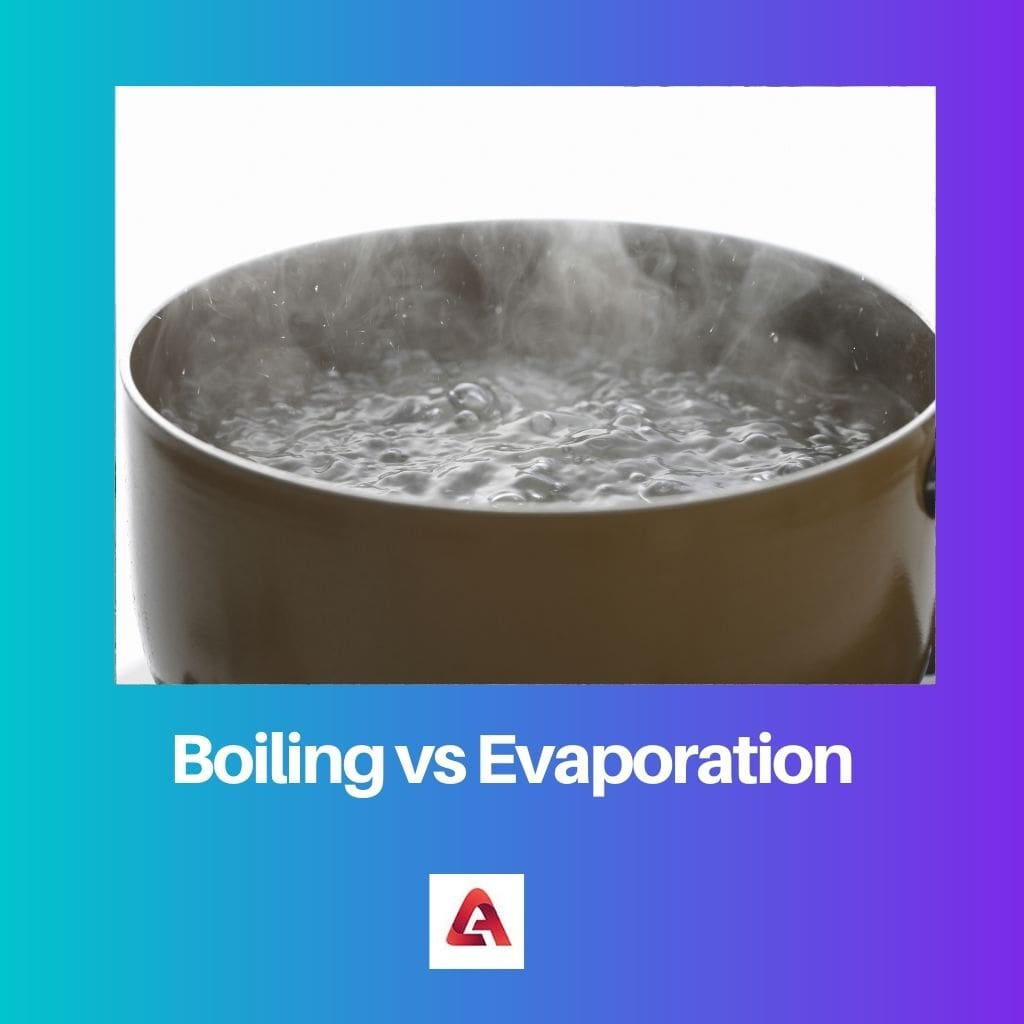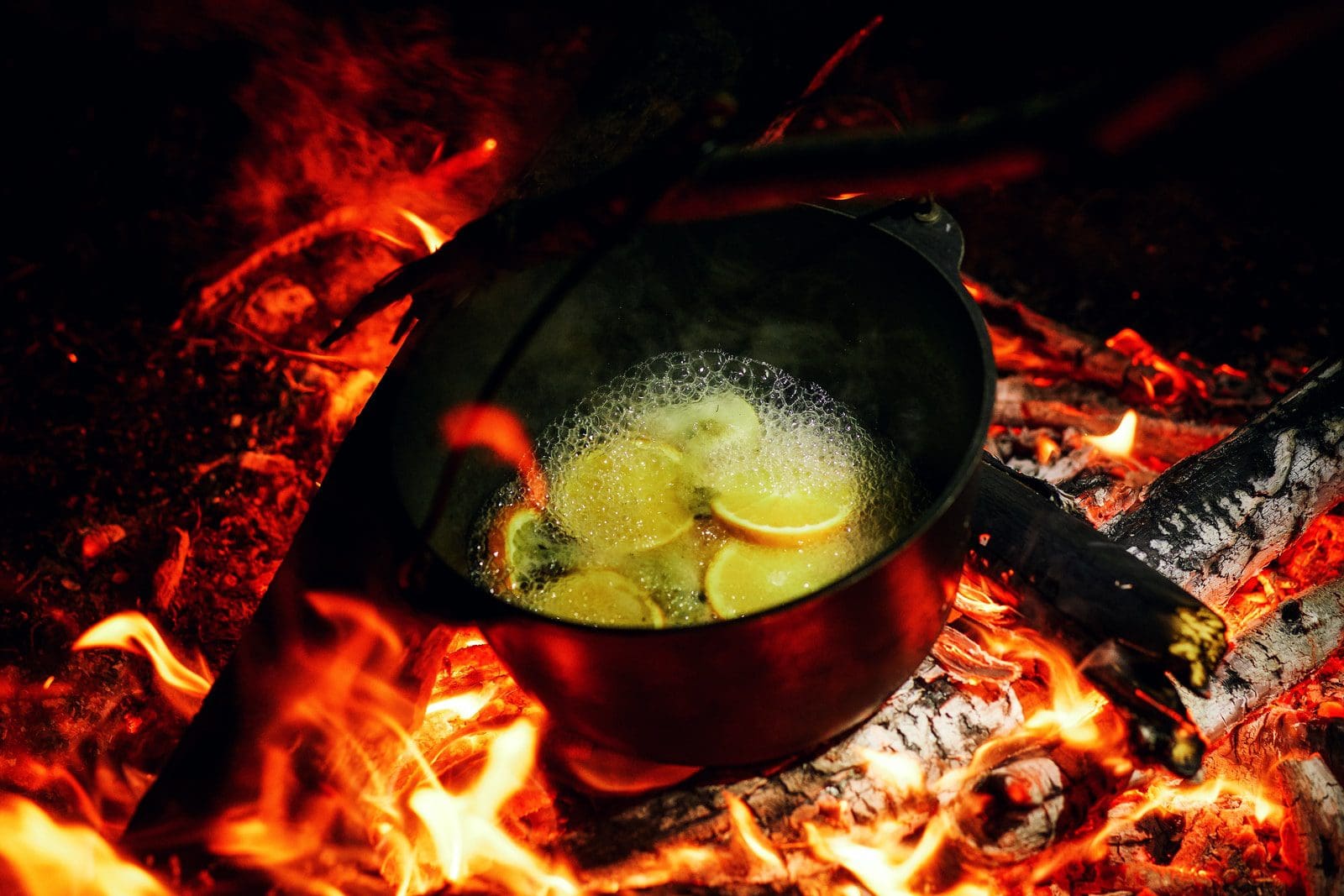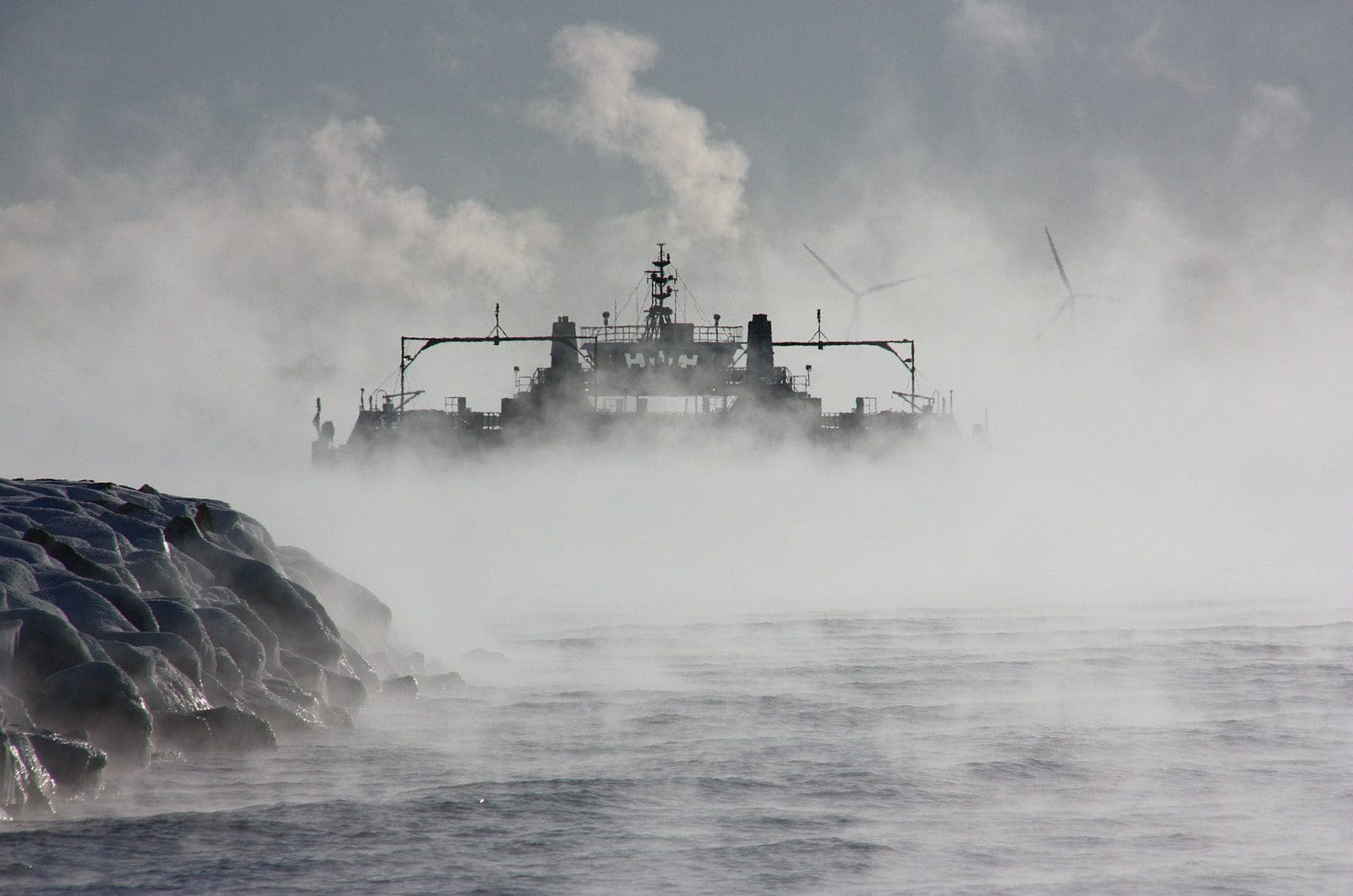Boiling is a rapid phase change of a liquid into vapor, occurring throughout the liquid at its boiling point, while evaporation is a slow process where molecules escape from the surface of a liquid into the air. Boiling requires the entire liquid to reach a specific temperature, higher than room temperature, whereas evaporation can occur at any temperature, albeit more slowly at lower temperatures.
Key Takeaways
- Boiling involves heating a liquid until it reaches its boiling point, causing rapid vaporization; evaporation is a gradual process that occurs at any temperature as molecules escape from a liquid’s surface.
- Boiling happens throughout the entire volume of a liquid, with bubbles forming and rising; evaporation only occurs at the liquid’s surface, with no visible bubbles.
- Boiling is quicker due to the high heat input, which accelerates vaporization; evaporation is slower, relying on ambient heat and varying with humidity and airflow.
Boiling vs Evaporation
Boiling occurs when a liquid is heated to its boiling point, which is the temperature at which the vapor pressure of the liquid equals the atmospheric pressure. Evaporation occurs when a liquid is heated but not to its boiling point, and the molecules of the liquid escape into the air as vapor.

Most of the time, boiling is not a naturally occurring process, unlike evaporation. Evaporation is natural, commonly referred to in the water cycle.
Evaporation can occur at any given moment, regardless of an increase in temperature. Leave a glass of water on the countertop long enough, and watch as the water levels go down without human interference.
Comparison Table
| Feature | Boiling | Evaporation |
|---|---|---|
| Definition | The process of a liquid rapidly changing into a gas throughout its entire volume at its boiling point. | The process of a liquid slowly changing into a gas from its surface at any temperature. |
| Rate | Faster | Slower |
| Temperature | Occurs only at the specific boiling point of the liquid. | Can occur at any temperature, but the rate increases with higher temperatures. |
| Formation of bubbles | Visible bubbles form throughout the liquid due to the rapid conversion of liquid to gas. | No bubbles are formed because only the surface molecules are escaping. |
| Energy requirement | Requires continuous heat input to maintain the boiling point. | Requires energy from the surrounding environment (e.g., air, sunlight) to convert molecules into gas. |
| Examples | Water boiling in a pot, lava flowing from a volcano | Drying clothes, puddles disappearing on a hot day |
What is Boiling?
Boiling is a phase transition process in which a liquid changes into its gaseous state throughout its bulk when heated to a specific temperature known as the boiling point. This transition occurs when the vapor pressure of the liquid equals the atmospheric pressure exerted on the liquid’s surface.
Mechanism of Boiling
- Formation of Vapor Bubbles: When a liquid is heated, its molecules gain energy and move more rapidly. At the boiling point, the kinetic energy of the molecules overcomes the intermolecular forces holding them together, allowing them to escape into the gaseous phase. These molecules form bubbles of vapor within the liquid.
- Bubble Growth and Release: As the temperature rises, more molecules acquire sufficient energy to escape from the liquid phase, leading to the growth of vapor bubbles. Eventually, these bubbles become large enough to rise through the liquid and reach the surface. Upon reaching the surface, the bubbles burst, releasing vapor into the surrounding environment.
- Continuous Process: Boiling is a dynamic process that continues as long as the liquid is heated to or above its boiling point and sufficient heat is supplied to maintain the transition of liquid to vapor.
Key Characteristics of Boiling
- Temperature Dependency: Boiling occurs at a specific temperature known as the boiling point, which varies depending on the pressure exerted on the liquid. Higher pressures raise the boiling point, while lower pressures lower it.
- Uniform Temperature: During boiling, the entire volume of the liquid reaches the boiling point temperature, ensuring that vaporization occurs uniformly throughout the liquid.
- Formation of Bubbles: A distinctive characteristic of boiling is the formation of vapor bubbles within the liquid. These bubbles result from the escape of vapor molecules and contribute to the vigorous motion observed in boiling liquids.
- Heat Transfer: Boiling is an efficient method of heat transfer, as the latent heat of vaporization is required to convert the liquid into vapor. This property is utilized in various industrial processes, such as power generation, cooking, and distillation.

What is Evaporation?
Evaporation is the process by which molecules in a liquid state (or solid state if the substance sublimes) gain enough energy to enter the gaseous state. It occurs at the surface of a liquid, where molecules with sufficient kinetic energy overcome the attractive forces of other molecules and escape into the surrounding space as vapor.
Mechanism of Evaporation
- Surface Molecules Escape: In a liquid, molecules are in constant motion due to their thermal energy. At the surface of the liquid, molecules can gain enough kinetic energy to overcome the intermolecular forces holding them in the liquid phase. These molecules escape into the air as vapor.
- Energy Absorption: The molecules that evaporate absorb energy from their surroundings to overcome the attractive forces of the liquid. This energy is obtained from the environment, lowering the temperature of the remaining liquid. Evaporation is an endothermic process because it requires energy input to break the bonds holding the liquid molecules together.
- Rate of Evaporation: The rate of evaporation depends on factors such as temperature, surface area, humidity, and the presence of other substances in the environment. Higher temperatures increase the average kinetic energy of molecules, leading to more frequent evaporation. Larger surface areas provide more space for molecules to escape, accelerating evaporation. Low humidity levels facilitate faster evaporation as there is less moisture in the air to saturate. Conversely, high humidity slows down evaporation as the air is already saturated with moisture.
Key Characteristics of Evaporation
- Temperature Dependence: Evaporation rates increase with higher temperatures because more molecules acquire the necessary kinetic energy to escape into the vapor phase.
- Non-Uniform Process: Unlike boiling, which occurs throughout the bulk of the liquid, evaporation takes place only at the surface of the liquid where molecules have sufficient energy to escape.
- Continuous Process: Evaporation is an ongoing process that continues as long as there is a temperature gradient between the liquid and its surroundings and the liquid’s surface remains exposed to the air.
- Cooling Effect: Evaporation causes a cooling effect on the remaining liquid and its surroundings because the molecules with the highest kinetic energy are the ones most likely to escape, leaving behind molecules with lower average kinetic energy, thus lowering the temperature.

Main Differences Between Boiling and Evaporation
- Location of Occurrence:
- Boiling occurs throughout the bulk of the liquid at its boiling point.
- Evaporation occurs only at the surface of the liquid.
- Temperature Dependency:
- Boiling occurs at a specific temperature, known as the boiling point, which is higher than the surrounding temperature.
- Evaporation can occur at any temperature, but its rate increases with higher temperatures.
- Rate of Process:
- Boiling is a rapid process characterized by the formation of bubbles within the liquid.
- Evaporation is a slower process where molecules escape from the surface of the liquid into the air.
- Energy Requirement:
- Boiling requires a continuous supply of heat to maintain the liquid at its boiling point.
- Evaporation absorbs heat energy from the surroundings to facilitate the transition of molecules from the liquid to the vapor phase.
- Uniformity:
- Boiling affects the entire volume of the liquid uniformly.
- Evaporation occurs only at the liquid’s surface and is not uniform throughout the bulk of the liquid.
- Formation of Bubbles:
- Boiling is characterized by the formation of bubbles within the liquid due to the rapid vaporization of molecules.
- Evaporation does not result in the formation of bubbles; it involves the gradual escape of molecules from the liquid’s surface.




